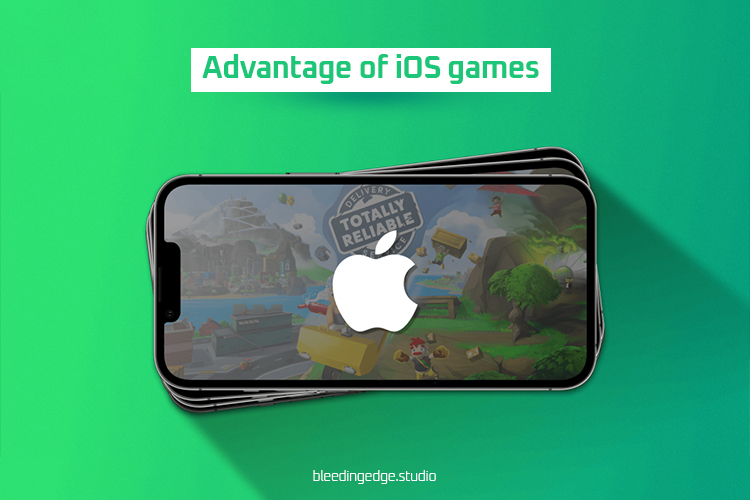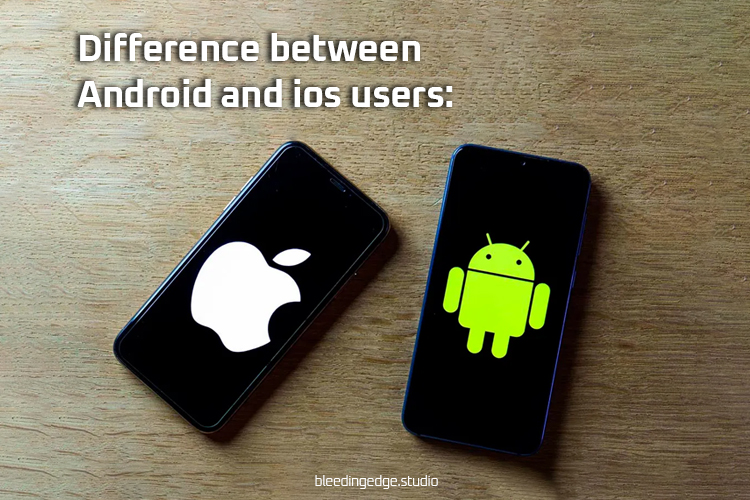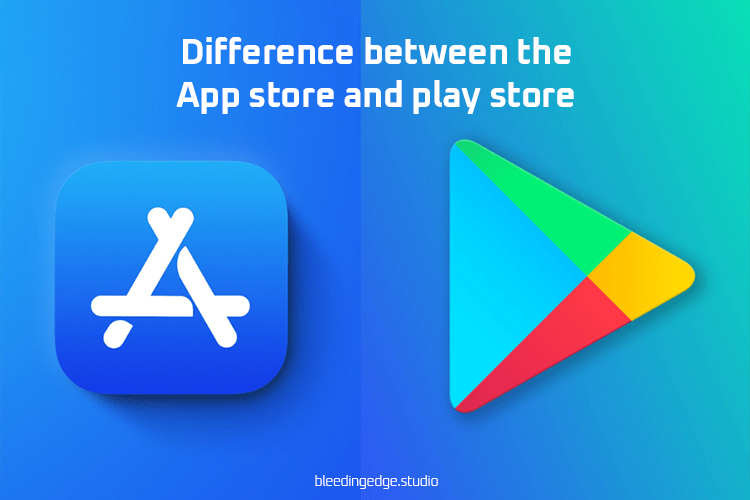Understanding the Policies and Strategies of App Stores for Safe and Secure Mobile Apps
The world of mobile gaming has exploded in popularity in recent years, and more games are available on Android and iOS devices than ever before. From puzzle games to complex multiplayer experiences, there is something for everyone on these platforms.
Android Games: Android games have become increasingly popular due to the accessibility of the platform, with many games available for free on the Google Play Store. Some of the most popular Android games include:
Among Us: This multiplayer game has taken the world by storm, allowing players to work together to identify the imposters on their spaceship.
Candy Crush Saga: A classic puzzle game that has been around for years, Candy Crush Saga pursue to be one of the most popular games on Android.
PUBG Mobile: This battle royale game has become a global sensation, pitting players against each other to be the last one standing.
Clash of Clans: A strategic game that has been around for years, Clash of Clans challenges players to build and defend their villages while attacking others.
Minecraft: This sandbox game has flatter a cultural phenomenon, allowing players to create their virtual worlds and explore the creations of others.
Advantages of Android Games:
One of the key advantages of Android games is their accessibility. With many games available for free on the Google Play Store, anyone with an Android device can quickly download and play various games. This has led to many casual games that can be played in short bursts, such as puzzle games like Candy Crush Saga or strategy games like Clash of Clans.
Another advantage of Android games is the ability to customize the experience. Since Android devices come in various shapes and sizes, developers can tailor their games to specific devices, offering a more optimized experience. Additionally, since Android is an open-source platform, developers have more freedom to experiment with new ideas and features.
However, there are also several downsides to Android games. Since so many games are available on the Google Play Store, finding quality games amongst the sea of options is challenging. Additionally, since Android is an open-source platform, there can be issues with security and compatibility across different device policies and strategies.
iOS Games: While iOS games are more expensive than their Android counterparts, they often offer more polished and refined experiences. Some of the most popular iOS games include:
Genshin Impact: A free-to-play action RPG, Genshin Impact has been commanded for its beautiful graphics, engaging story, and deep combat system.
Fortnite: Another battle royale game that has become a global sensation, Fortnite is known for its colorful graphics, fast-paced gameplay, and frequent updates.
Monument Valley: A puzzle game that has won numerous awards for its stunning visuals and innovative gameplay mechanics, it is a must-play for puzzle fans.
Alto’s Odyssey: A side-scrolling game that challenges players to snowboard down mountains, Alto’s Odyssey has been praised for its beautiful graphics and relaxing gameplay.
Threes!: A simple puzzle game that has become a cult classic, Threes! Challenges players to combine numbers in a grid to create the highest score possible.
iOS Games & Its Advantages:
While iOS games are more expensive than Android games, they often offer more polished and refined experiences. This is partly due to the strict guidelines and regulations Apple sets for developers, ensuring that only high-quality games make it onto the App Store policies and strategies.

Another advantage of iOS games is the integration with other Apple devices. For example, games like Genshin Impact can be played seamlessly across iPhone, iPad, and Mac devices, offering a more cohesive and immersive experience.
However, one downside of iOS games is the cost. While many Android games are free, most iOS games have a price tag. This can make it difficult for some users to justify spending money on a mobile game.
Overall, both Android and iOS games offer unique advantages and disadvantages. Whether you’re doing a casual puzzle game on your phone or a more immersive experience that spans multiple devices, there is something for everyone on both platforms’ policies and strategies.
Numerous great games are available on both platforms, whether you’re an Android or iOS user. From simple puzzle games to more comprehensive multiplayer experiences, there’s something for everyone to enjoy. So grab your phone, download a game, and get ready for fun!
Difference between Android and IOS Users:

While Android and iOS devices are both smartphones, there are some main differences between the two, and as a result, there are also some differences between Android and iOS users’ policies and strategies.
Cost: One of the biggest differences between Android and iOS devices is the cost. While there are expensive Android devices, many budget-friendly options are also available. On the other hand, Apple’s iOS devices tend to be more expensive, which can limit the audience of iOS users to those who can afford the premium price.
Customization: Android devices are known for their customization options, allowing users to personify their devices with different launchers, widgets, and settings. On the other hand, iOS devices are more limited in terms of customization, which can make them feel more streamlined and user-friendly to some users.
User Interface: The user interface is another key difference between Android and iOS devices. Android devices typically have a more complex and customizable interface, while iOS devices have a more streamlined and intuitive interface.
App Availability: While Android and iOS devices can access many of the same apps, some are exclusive to one platform. For example, some apps that are popular on iOS, such as GarageBand or iMovie, are not available on Android.
Demographics: Due to the differences in cost, customization, and user interface, there are some demographic differences between Android and iOS users. Android devices tend to be more popular among younger and lower-income users, while iOS devices are more popular among higher-income users and those prioritizing a premium user experience.
Overall, while Android and iOS devices share many similarities, some key differences in cost, customization, user interface, app availability, and demographics can lead to differences in the types of users that prefer one platform over the other.
Difference between the App Store and Play Store:

The App Store and Play Store are the official app distribution platforms for iOS and Android devices. While both platforms serve the same purpose of providing users with access to apps and games, there are some main differences between the two.
User Base: The user base of the two platforms differs significantly. While the App Store is exclusively for iOS devices, which tend to be more expensive, the Play Store is available on a wider range of Android devices, including many budget-friendly options. This means that the user base of the Play Store is generally larger and more diverse than the user base of the App Store.
Revenue Models: The revenue models for the two platforms differ as well. Apple’s App Store is known for its strict policies and high fees for developers, with a commission of 30% on all in-app purchases. On the other hand, Google’s Play Store has a more flexible revenue model, allowing developers to set their prices and take a smaller commission of 15-30% on in-app purchases.
App Approval Process: The approval process for App Store and Play Store apps also differs. Apple’s App Store has a stricter approval process, with a team of reviewers manually checking every app for compliance with the App Store Review Guidelines. In contrast, Google’s Play Store has a more automated approval process, with apps being screened by algorithms and human reviewers.
App Discovery: App discovery on the two platforms also differs. The App Store has a curated approach to app discovery, featuring personalized recommendations, editorial content, and “Featured” apps. In contrast, the Play Store has a more algorithmic approach to app discovery, featuring personalized app recommendations based on user behavior, search queries, and download history.
Security: Both platforms take security seriously and have mechanisms to protect users from malicious apps. However, the App Store is generally considered more secure due to Apple’s stricter policies and manual review process, while the Play Store has had issues with malicious apps slipping through the cracks policies and strategies.
Overall, while the App Store and Play Store serve the same purpose of distributing apps to users, some key differences in user base, revenue models, app approval process, app discovery, and security set the two platforms apart.
App Store Policies and Strategies:
App stores have policies and strategies to ensure that the apps available on their platforms are safe, secure, and meet certain standards. Below are some common policies and strategies implemented by app stores:
App Approval Process: App stores have an approval process to ensure that only high-quality apps are available for download. This process involves reviewing the app for compliance with the app store’s guidelines, checking for malicious code, and verifying that the app is functional and works as described in policies and strategies.
User Privacy: App stores have policies in place to protect user privacy. These policies require app developers to be transparent about how they collect, use, and store user data and to provide users with a way to opt out of data collection.
In-App Purchases: App stores have guidelines around in-app purchases to ensure they are transparent and fair to users. For example, app stores may require developers to disclose the price of in-app purchases, provide a way for users to cancel subscriptions, and reduce the amount spent on in-app purchases without requiring additional user authorization policies and strategies.
Content Restrictions: App stores have content restrictions to ensure that apps do not contain inappropriate or offensive content. This includes guidelines around violence, hate speech, sexually explicit content, and illegal activities.
Developer Guidelines: App stores have guidelines for developers that cover topics such as intellectual property, app design, and app functionality. These guidelines ensure that apps meet a certain level of quality and functionality and do not infringe on the intellectual property of others.
App Store Optimization (ASO):
App Store Optimization (ASO) refers to optimizing an app to enhance its visibility and ranking in the app store search results. App stores may provide developers with guidelines and best practices for ASO, such as optimizing the app title, description, and keywords.
Overall, app stores have policies and strategies to ensure that apps available on their platforms are safe, secure, and meet certain standards policies and strategies. These policies and strategies are designed to protect users, ensure fair competition among developers, and maintain the integrity of the app store ecosystem.
Google Play Store:
The official app store for Android devices has a set of policies and strategies to ensure that apps on its platform meet certain standards and provide a safe and secure user experience.

Below are some of the key policies and strategies implemented by the Google Play Store:
App Approval Process: The Google Play Store has an approval process to ensure that apps meet certain standards before being available for download. This process involves reviewing the app for compliance with the Google Play Developer Program Policies, checking for malicious code, and verifying that the app is functional and works as described.
User Privacy: The Google Play Store has policies to protect user privacy. These policies require app developers to be transparent about how they collect, use, and store user data and to provide users with a way to opt out of data collection policies and strategies.
In-App Purchases: The Google Play Store has guidelines around in-app purchases to ensure they are transparent and fair to users. For example, app developers must disclose the price of in-app purchases, allow users to cancel subscriptions, and limit the amount of money served on in-app purchases without requiring additional user authorization.
Content Restrictions: The Google Play Store has content restrictions to ensure that apps do not contain inappropriate or offensive content. This includes guidelines around violence, hate speech, sexually explicit content, and illegal activities.
Developer Guidelines: The Google Play Store has guidelines for developers covering intellectual property, app design, and app functionality. These guidelines ensure that apps meet a certain level of quality and functionality and do not infringe on the intellectual property of others.
App Store Optimization (ASO): The Google Play Store provides developers with guidelines and best practices for ASO, such as optimizing the app title, description, and keywords, to help improve their app’s visibility and ranking in the Play Store search results.
Overall, the Google Play Store has policies and strategies to ensure that apps on its platform meet certain standards and provide a safe and secure user experience. These policies and strategies are designed to protect users, ensure fair competition among developers, and maintain the integrity of the app store ecosystem.
Conclusion:
In conclusion, app stores such as the Apple App Store and Google Play Store play a critical role in the mobile app ecosystem by providing a platform for developers to distribute their apps to users. These app stores have policies and strategies to ensure that the apps available on their platforms are safe, secure, and meet certain standards.
These policies and strategies cover app approval processes, user privacy, in-app purchases, content restrictions, developer guidelines, and app store optimization. By implementing these policies and strategies, app stores help to protect users, ensure fair competition among developers, and maintain the integrity of the app store ecosystem.
Apps like the Apple App Store and Google Play Store have become the primary way users discover and download mobile apps. With millions of apps available, app stores have implemented policies and strategies to ensure that the apps available on their platforms are safe, secure, and meet certain standards. These policies and strategies cover various areas, including app approval processes, user privacy, in-app purchases, content restrictions, developer guidelines, and app store optimization policies and strategies.
The app approval process ensures that only high-quality apps are available for download by reviewing the app for compliance with the app store’s guidelines, checking for malicious code, and verifying that the app is functional and works as described. User privacy policies require app developers to be transparent about how they collect, use, and store user data and to provide users with a way to opt out of data collection.
In-app purchase guidelines ensure that they are transparent and fair to users, while content restrictions ensure that apps do not contain inappropriate or offensive content. Developer guidelines cover intellectual property, app design, and app functionality to ensure that apps meet a certain level of quality and functionality.
App store optimization is another key strategy implemented by app stores. It helps developers to optimize their apps for better visibility and ranking in the app store search results by optimizing the app title, description, and keywords.
Overall, app stores have played a significant role in shaping the mobile app ecosystem. By implementing policies and strategies to ensure that the apps available on their platforms are safe, secure, and meet certain standards, app stores have helped to protect users, promote fair competition among developers, and maintain the integrity of the app store ecosystem policies and strategies.

